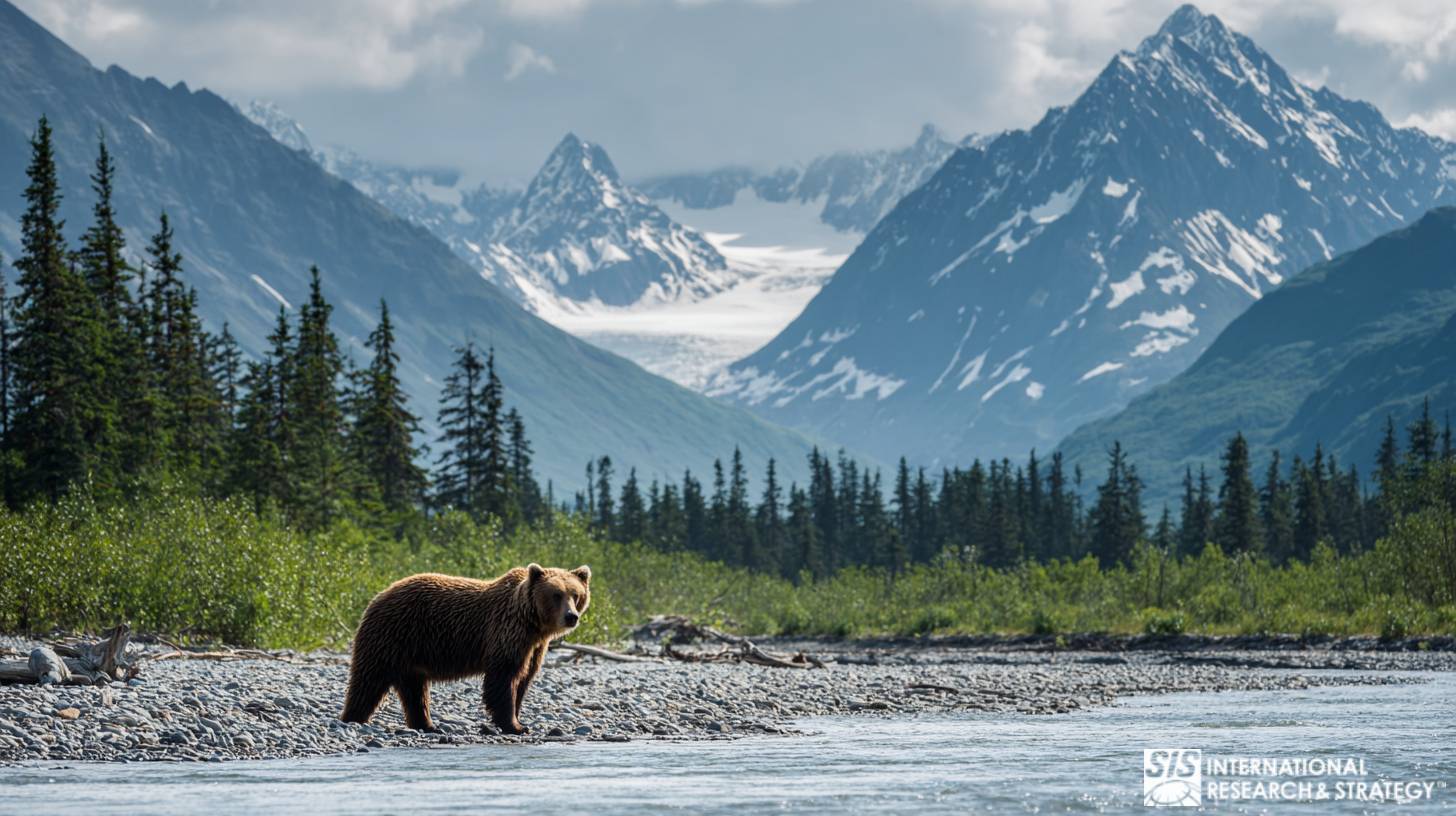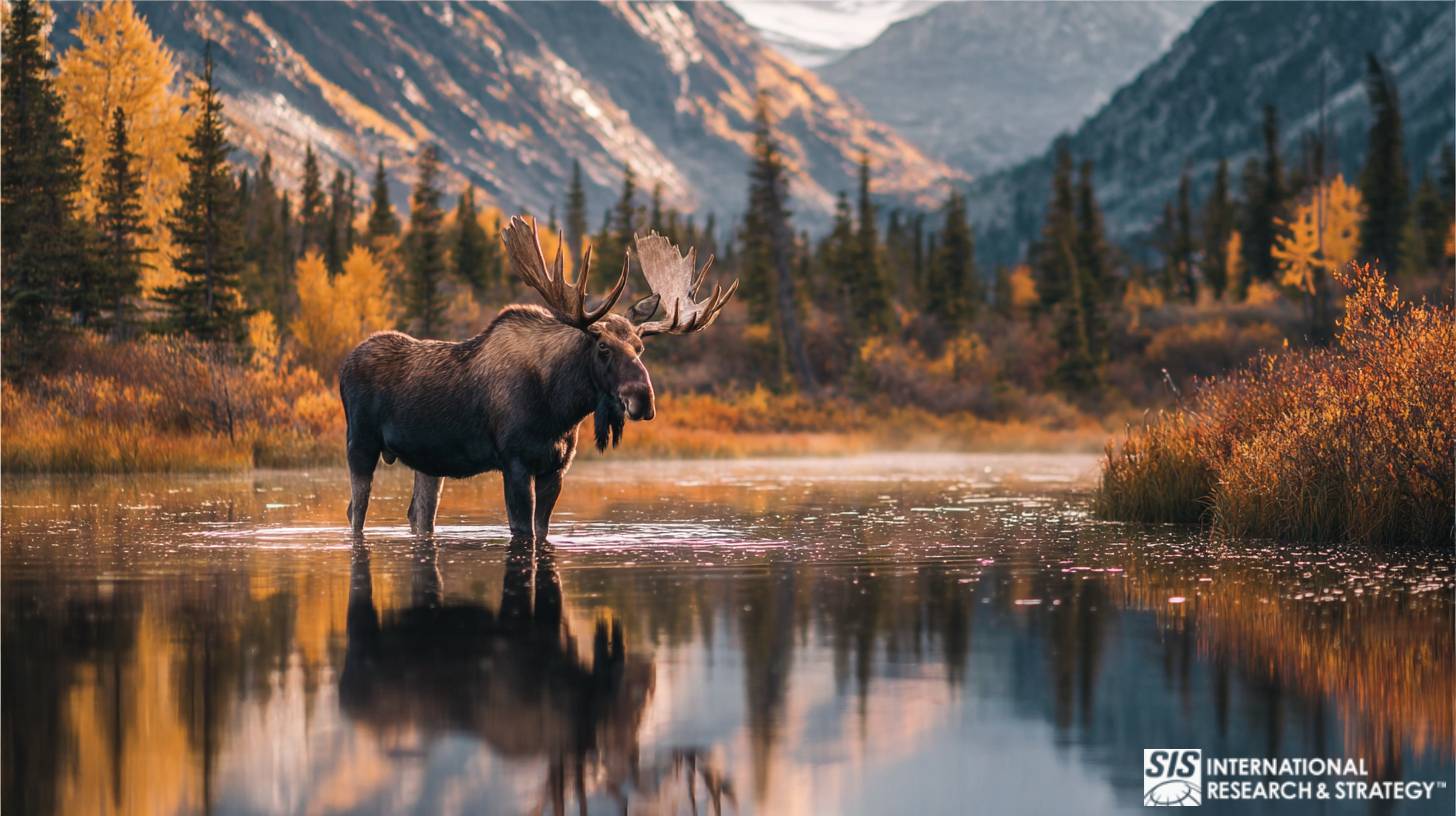Market Research in Alaska

How can businesses in Alaska uncover opportunities and navigate the complexities of the local market? Market research in Alaska provides critical insights into consumer behavior, market trends, and competitive dynamics, empowering businesses to successfully navigate this challenging environment.
What Is Market Research in Alaska?
Market research in Alaska helps businesses identify emerging trends, assess the feasibility of new products or services, and understand the competitive dynamics within the state. This information is crucial for making informed decisions that align with market demands and consumer needs.
Moreover, market research in Alaska helps businesses uncover growth and innovation opportunities. It provides a detailed understanding of the target audience, enabling companies to develop products and services that resonate with local consumers.
What Are the Benefits of Market Research in Alaska?
Market research in Alaska offers numerous benefits that can significantly enhance a company’s strategic planning and operational efficiency. By investing in thorough market research, businesses can gain a competitive edge and drive sustainable growth.
- Informed Decision-Making: Market research in Alaska provides critical data and insights, enabling businesses to make well-informed decisions.
- Risk Mitigation: Market research can help businesses identify potential risks and challenges before launching new products or entering new markets.
- Enhanced Customer Understanding: Market research in Alaska helps businesses better understand customers’ needs, preferences, and behaviors.
- Competitive Advantage: By analyzing competitors and market conditions, businesses can identify opportunities to differentiate themselves and gain a competitive advantage.
- Strategic Growth: Market research in Alaska provides insights into emerging trends and opportunities for growth.
Expected Results from SIS’s Market Research in Alaska
Investing in market research in Alaska provides numerous benefits that drive business success and growth. Our comprehensive research approach delivers actionable insights, enabling businesses to make informed decisions and navigate the market landscape strategically.
Increased Revenue:
SIS International helps businesses identify high-potential opportunities, target the right customer segments, and optimize their marketing strategies. By aligning offerings with market demand, companies can enhance their revenue streams and achieve sustainable growth.
Reduced Risk:
Our market research in Alaska identifies potential risks and challenges, allowing businesses to develop proactive mitigation strategies. This reduces the likelihood of costly mistakes and enhances the chances of successful market entry or expansion.
Enhanced Customer Understanding:
SIS’s market research in Alaska provides a deep understanding of customer preferences, behaviors, and needs. This insight enables businesses to create more personalized and relevant products, services, and marketing campaigns, increasing customer satisfaction and loyalty.
Competitive Advantage:
By analyzing competitors and market trends, SIS’s research helps businesses identify opportunities to differentiate themselves and gain a competitive edge. Understanding the competitive landscape allows companies to develop strategies that outpace their rivals.
Accelerated Innovation:
SIS’s market research in Alaska identifies emerging trends and technological advancements. This fosters innovation and allows companies to capitalize on new opportunities for growth and development.
Boosted ROI:
SIS’s market research in Alaska helps businesses maximize their return on investment by providing actionable insights and data-driven recommendations. Our market research in Alaska services ensures that companies make strategic decisions that drive profitability and long-term success.
Market Research in Alaska: Main Tourist Attractions

Alaska is renowned for its breathtaking natural landscapes, abundant wildlife, and unique cultural heritage, making it a tourist destination. Here are seven of the most important tourist attractions in the state:
- Denali National Park and Preserve: This park offers stunning landscapes, diverse wildlife, and numerous outdoor activities such as hiking, camping, and viewing.
- Glacier Bay National Park: Glacier Bay is a UNESCO World Heritage Site. Visitors can experience glacier tours, whale watching, and kayaking in this pristine environment.
- Kenai Fjords National Park: This park features stunning icefields, fjords, and abundant marine wildlife. Popular activities include boat tours, hiking, and exploring the Harding Icefield.
- Mendenhall Glacier: Located near Juneau, Mendenhall Glacier is a popular destination for its accessible glacier views and hiking trails. The visitor center provides insights into the glacier’s history and ecosystem.
- Katmai National Park and Preserve: Famous for its brown bear population, especially at Brooks Falls, Katmai offers incredible wildlife viewing opportunities. The park also features volcanic landscapes and diverse ecosystems.
- Anchorage Museum: The Anchorage Museum offers extensive exhibits on Alaskan history, culture, and art. It provides a comprehensive overview of the state’s heritage and contemporary issues.
- Skagway: Skagway offers a glimpse into the past with its preserved historic buildings, museums, and the scenic White Pass & Yukon Route Railroad. It is a popular stop for cruise ships and tourists exploring Alaska’s heritage.
Key Industries in Alaska
Alaska’s economy is supported by several key industries, each contributing significantly to the state’s economic growth and development. Understanding these industries is crucial for businesses aiming to succeed in the state.
• Oil and Gas: The oil and gas industry is the cornerstone of Alaska’s economy. Major companies like ConocoPhillips and BP have significant operations in the state, particularly in areas like the North Slope. This industry provides substantial revenue and drives infrastructure development and job creation.
• Fisheries: Alaska’s rich marine resources make it one of the world’s leading seafood suppliers. Trident Seafoods and Icicle Seafoods play critical roles in this sector. The fisheries industry is essential for local consumption and international exports, contributing significantly to the state’s economy.
• Tourism: Tourism is another vital industry in Alaska, driven by its stunning natural landscapes and unique wildlife. Companies like Princess Cruises and Alaska Airlines facilitate tourists seeking adventures in national parks, glaciers, and wildlife reserves. The tourism industry supports various businesses, from hospitality to guided tours.
• Mining: Alaska is rich in natural resources, including gold, zinc, and copper. Companies such as Teck Resources and Kinross Gold are key players in the mining industry. This sector is crucial for the state’s economy, providing jobs and contributing to the state’s exports.
• Healthcare: The healthcare industry in Alaska is expanding rapidly, driven by a growing population and increasing demand for medical services. Institutions like Providence Health & Services and Alaska Native Medical Center are significant providers of healthcare services in the state. This industry offers numerous opportunities for medical equipment, pharmaceuticals, and healthcare services businesses.
Advantages of Operating a Business in Alaska
The state is one of the biggest industrial centers in the world. Alaska is a stopping point for all cargo vessels crossing the Arctic Circle. Revenue from seaports is one of the state’s primary sources of income. The state has one of the country’s most deregulated air cargo transfer rights, facilitating logistical operations.
Free Trade Zones
Alaska has unique regulations that ease international trade. For example, it has five Foreign Trade Zones. Residents can carry out their business operations in these zones. Once there, they are not subject to U.S. taxes and regulatory provisions. The zones help business owners to reduce their operational costs.
All corporations in the state can operate in the five Foreign Trade Zones, where businesspeople can enjoy various tax benefits. For example, Alaska does not charge sales, income, or inheritance taxes.
Ease of Doing Business
Also, starting a business in Alaska is more straightforward than in most states. For example, are you opening an enterprise in College, Alaska? You only need to file simple forms. Submit these forms to the Alaska Division of Corporations. The next step is to apply for a business license.
Before you start a business in Alaska, take some time to understand your chosen industry. Research and obtain the necessary funds. You will also need relevant documentation and a business location. Then, find the labor required to guarantee high customer satisfaction levels.
Business Opportunities in Alaska
1. Oil and Gas Business
Oil and gas are the primary sources of income in Alaska. The oil and gas industry provides many jobs for residents. It is one of the most lucrative business opportunities in the state. A prudent entrepreneur will not fail in this type of business. You only have to follow the rules and regulations.
2. Automobile Repair Business
The number of vehicles in Seward, Alaska, has increased. According to market research in Alaska, this increase has provided a perfect opportunity for an automobile repair business. It is a viable business opportunity for an entrepreneurial mechanical engineer.
3. Sale and Repair of Fishing Equipment
Fishing is the main economic activity in Petersburg, Alaska. Some residents do fish export business. Thus, investing in the sale and repair of fishing equipment can be a profitable venture. Whether you start small or large, the chances of good returns on your investment are high.
4. Transportation and Logistics
Alaska is a central logistics and shipping hub, linking Asia and North America. Many cargo planes fly to Anchorage daily to unload consumer electronics and other valuable goods for distribution across the 50 states. This hub-and-spoke logistics model makes Alaska a key market because planes can fly 6 hours from China and efficiently distribute goods in North America.
Challenges of Doing Business in Alaska

While Alaska presents many opportunities, businesses must also navigate specific challenges to succeed. Understanding these challenges is crucial for developing effective strategies and mitigating potential risks:
- Harsh Climate: Alaska’s extreme weather conditions, including long, cold winters and remote locations, can pose business logistical challenges. Companies must invest in infrastructure and contingency plans to ensure operational continuity during harsh weather.
- High Operational Costs: Due to its remote location, Alaskan businesses often face higher transportation, utilities, and supplies costs. Managing these costs effectively is essential for maintaining profitability and competitiveness.
- Infrastructure Gaps: Despite significant infrastructure investments, certain areas of Alaska still lack adequate transportation, broadband access, and utilities. Businesses must consider these factors when planning operations and expansions and may need to invest in infrastructure development.
- Workforce Availability: Recruiting and retaining skilled workers can be challenging in Alaska, especially in remote areas. Businesses may need to invest in training and development programs to build a local workforce or offer incentives to attract talent from other regions.
Market Research in Alaska: SWOT Analysis
Conducting a SWOT analysis provides a comprehensive understanding of the strengths, weaknesses, opportunities, and threats associated with the Alaska market.
Strengths:
- Rich Natural Resources: Alaska’s abundant natural resources, including oil, gas, minerals, and fisheries, provide a strong foundation for various industries and economic growth.
- Unique Tourism Appeal: The state’s stunning landscapes, wildlife, and cultural heritage make it a top tourist destination, driving growth in the tourism and hospitality sectors.
- Strategic Location: Alaska’s proximity to Asia and the Arctic provides strategic advantages for trade and logistics, particularly in the energy and shipping industries.
Weaknesses:
- Harsh Climate: Extreme weather conditions can disrupt operations and increase business costs, requiring significant investment in infrastructure and contingency planning.
- High Operational Costs: The remote location and logistical challenges result in higher transportation, utilities, and supplies costs, which impact profitability.
- Infrastructure Gaps: Certain areas of Alaska still lack adequate infrastructure, including transportation and broadband access, hindering business operations and expansion.
Opportunities:
- Renewable Energy Development: Wind, solar, and hydroelectric power investments can diversify Alaska’s energy portfolio and promote sustainable development.
- Healthcare Innovation: Growing demand for healthcare services presents business opportunities in medical equipment, pharmaceuticals, and telemedicine, particularly in remote areas.
- Technological Solutions: Alaska’s unique challenges create opportunities for tech companies to develop innovative solutions for remote communication, logistics, and environmental monitoring.
Threats:
- Economic Volatility: Alaska’s dependence on industries such as oil and gas makes it susceptible to economic fluctuations and commodity price volatility.
- Regulatory Challenges: Navigating complex state and federal regulations, particularly in resource extraction industries, can pose business challenges and require continuous compliance efforts.
- Environmental Concerns: Managing the environmental impact of industrial activities is crucial. Businesses must adopt sustainable practices to address environmental issues and comply with regulations, which can add operational costs.
About SIS International
SIS International offers Quantitative, Qualitative, and Strategy Research. We provide data, tools, strategies, reports, and insights for decision-making. We also conduct interviews, surveys, focus groups, and other Market Research methods and approaches. Contact us for your next Market Research project.

